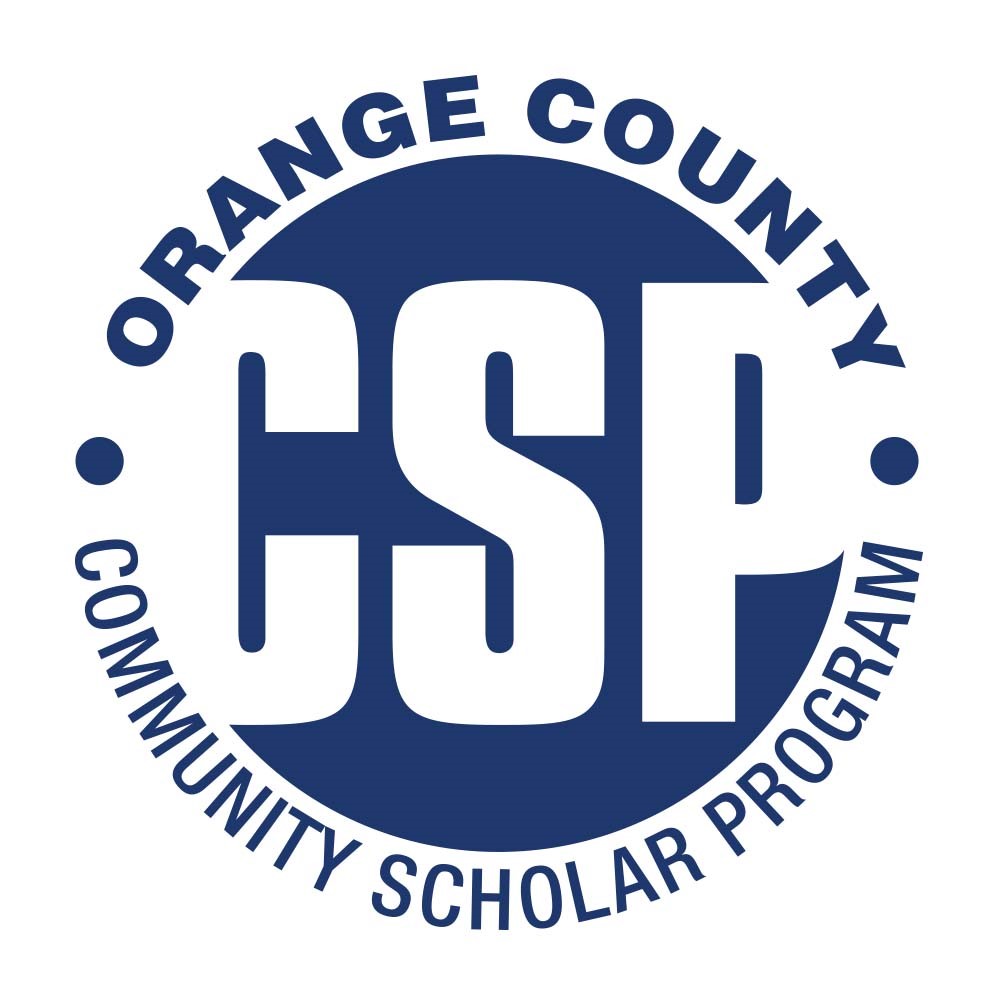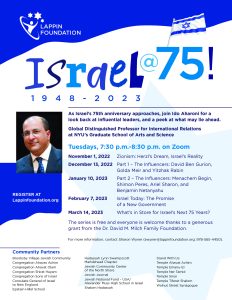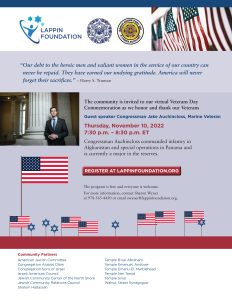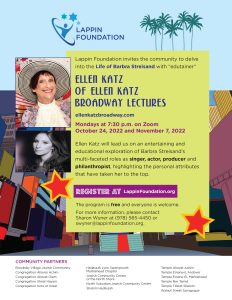JOIN OUR MAILING LIST
NOVEMBER 2022 PROGRAMS
CSP
The Walnut Street Synagogue is pleased to be a partner congregation of the Orange County Jewish Community Scholar Program. Please join us at an upcoming program!

From Andalusia to Cairo: The Life, Works and Thought of Rabbi Moshe ben Maimon (RaMBaM)
Part 1 – Tuesday, November 15, 1:00 pm EST
Part 2 – Tuesday, November 22, 1:00 pm EST
Part 3 – Tuesday, November 29, 1:00 pm EST
Part 4 – Tuesday, December 6, 1:00 pm EST
(online in partnership with the Orange County Jewish Community Scholar Program)

Alas, it is impossible to overstate Moses Maimonides’ influence on Judaism. At the height of the Islamic enlightenment, Moses was born (1138) in Cordoba, Spain to Maimon the judge. His family fled a decade later when the tolerant Islamic regime was overthrown by a fanatic sect. Finally settling in Cairo, Maimonides served as physician to the Sultan, Saladin, during the Christian Crusades in the Land of Israel. The product of high Islamic culture and deep Jewish learning, Maimonides transformed Jewish literature and Jewish thought. He systematized, codified, and rationalized the Jewish traditions which he had inherited. In shocking ways, he turned Judaism into a religion. This four-week course will immerse us in the family, life, times, works, and thought of Rabbi Moshe ben Maimon (RaMBaM). We’ll travel from the poetry-infused life of Andalusia to the medical clinic RaMBaM ran outside of Cairo. We’ll look at his commentary, code, philosophy, and letters. Finally, we’ll see how his son’s attraction to Sufi mysticism was both predictable and an uncanny precursor to post-Enlightenment Judaism.
Rabbi Dr. Shai Cherry serves as rabbi and Creative Educational Officer of Congregation Adath Jeshurun in Elkins Park, Pennsylvania. After eighteen years in academics, he shifted from university teaching to the pulpit in 2019. Rav Shai’s early academic research focused on Judaism and Darwinism. His first book, Torah through Time: Understanding Bible Commentary from the Rabbinic Period to Modern Times, redirected his focus from creation to revelation—how is God’s word and will understood in changing circumstances? Finally, how do we respond to what we understand to be God’s will? To address that question, he attended the Ziegler School of Rabbinic Studies and was ordained in 2009. His latest work, Coherent Judaism: Constructive Theology, Creation, and Halakhah brings these threads together to offer a vision of 21st-century Judaism. Formerly on the faculties of Vanderbilt University and the University of San Diego, he is the featured lecturer for The Great Courses’ “Introduction to Judaism.”
Part 1 – Program video
Part 2 – Program video
Part 3 – Program video
Register here
Hassidus in Relationship to History, Tradition and Reform
Part 1 – Rabbinism and Kabbalism: Mutually Exclusive Systems? – Wednesday, November 2, 1:00 pm EDT
Part 2 –Sectarianism and Denominationalism: What Are The Limits of Diversity? – Wednesday, November 9, 1:00 pm EST
Part 3 –Leadership models: Rabbis and Rebbes – Wednesday, November 16, 1:00 pm EST
Part 4 – Many Messiahs: Ultimate Leadership – Wednesday, November 23, 1:00 pm EST
(online in partnership with the Orange County Jewish Community Scholar Program)
Part 1 – Rabbinism and Kabbalism: Mutually Exclusive Systems? – Jewish life was for centuries based around halakhah (Jewish law). It still is, in the sense that Jews either live within its bounds in one way or another, or they react to it by rejecting it. But how many lawyers do you know are also mystics? It would seem at the outset that there is a perhaps unbridgeable gap between the apparently hard-headed down-to-earth pragmatism of the legal profession and the seemingly transcendent metaphysical concerns of mystics and magicians. In Hassidus, these divergent poles converged. To understand this, we must introduce Kabbalah as a system that tugged Judaism in an antinomian (anti-halakhic) way, but which was “tamed” in a mostly nomian (halakhah-abiding) manner in Hassidus.
Part 2 –Sectarianism and Denominationalism: What Are The Limits of Diversity? – There are a LOT of sects and parties in Judaism. Jews are incredibly geographically, theologically, ethnically, and liturgically diverse. Hassidus was very successful in creating a new distinction between and among Jews that became so popular that its opponents were called, simply, Misnagdim (the opponents, the Protestants). We will explore the full range of Jewish diversity, ask what are the boundary markers of what is “Jewish,” and consider where Hassidus is situated in the complex thicket of traditions and “flavors” that constitute Jewish identity and observance.
Part 3 –Leadership models: Rabbis and Rebbes – What do you think of when you think of a rabbi? Someone in a robe or tallis who tells you to stand up and sit down and read responsively on page 16 when you are in shul? A preacher of sermons? A comforter in times of trouble and sadness? An explainer? A judge? If we use the term “rebbe,” an entirely different set of associations may emerge—or, we may have none at all. So what’s the difference between a rabbi and a rebbe? Does one proceed from the other? Is one more, or less intimate from the other? And where do rabbis and rebbes fit in the long list of other leadership models— from prophet to shamash (synagogue caretaker) that have existed among Hebrews, Israelites and Jews throughout their history?
Part 4 – Many Messiahs: Ultimate Leadership – Mashiach means “anointed one”—literally “greasy.” What’s the relationship between oiliness and leadership? Is Messiah a divine title? At the pinnacle, or somewhere else in the hierarchy of leadership? Is it a gendered term? Is the Messiah a human or a divine being? Or is the Messiah something, somehow, in between? We will investigate this term from its biblical origins to its rabbinic political reimaginings, to its further reconfiguration in Hassidus and beyond.
Marc Michael Epstein is the product of a mixed marriage between the scions of Slonimer and Lubavitcher Hassidim and Romanian socialists, and grew up, rather confused, but happy, in Brooklyn, New York. He is currently Professor of Religion at Vassar College, where he has been teaching since 1992, and was the first Director of Jewish Studies. At Vassar, he teaches courses on medieval Christianity, religion, arts and politics, and Jewish texts and sources. He is a graduate of Oberlin College, received the PhD at Yale University, and did much of his graduate research at the Hebrew University in Jerusalem. He has written numerous articles and three books on various topics in visual and material culture produced by, for, and about Jews. His book, The Medieval Haggadah: Art, Narrative, and Religious Imagination (Yale, 2011) was selected by the London Times Literary Supplement as one of the best books of 2011. During the 1980s, Epstein was Director of the Hebrew Books and Manuscripts division of Sotheby’s Judaica department. He continues to serve as consultant to various libraries, auction houses, museums and private collectors throughout the world, among them, the Herbert C. and Eileen Bernard Museum at Temple Emanu-El in New York City, for which he curated the inaugural exhibition, and the Fowler Museum at UCLA. He is the Director of Beit Venezia, the home for International Jewish Studies in Venice, Italy.
Part 1 – Program video
Part 2 – Program video
Part 3 – Program video
Part 4 – Program video
Will the Synagogue Survive?
Thursday, November 17, 3:30 pm EST
(online in partnership with the Orange County Jewish Community Scholar Program)

It is said that the Jews are the “ever-dying people.” Certainly the synagogue is the “ever-dying institution.” But just like an ever-dying people is an ever-renewing people, the synagogue has been reborn generation to generation. And it is being reinvented yet again. A look backward at the remarkable history of the American synagogue reveals clues to the resilience and resonance of our synagogue communities.
Rabbi Ed Feinstein is rabbi of Valley Beth Shalom in Encino, California and Lecturer at the Ziegler Rabbinical School of the American Jewish University. He serves on the faculty of the Wexner Heritage Program and the Shalom Hartman Institute, and lectures widely across the US and Canada. Raised on the frontier of the West San Fernando Valley, Rabbi Feinstein graduated from the University of California at Santa Cruz, Columbia University Teachers College, and the Jewish Theological Seminary of America, where he was ordained a rabbi and earned his doctorate in education. Rabbi Feinstein was the founding head of the Solomon Schechter Academy of Dallas, Associate Rabbi of Congregation Shearith Israel in Dallas, and Executive Director of Camp Ramah in California. He came to Valley Beth Shalom in 1993. Rabbi Feinstein is the author of five books, including Tough Questions Jews Ask, which is taught in schools and synagogues across North America. His latest book, In Pursuit of Godliness and a Living Judaism, is an intellectual biography of his mentor, Rabbi Harold Schulweis. Ed shares life with Rabbi Nina Bieber Feinstein, their three children and spouses, and one beautiful new granddaughter. Every Friday afternoon, he bakes brownies from a recipe revealed to his ancestors at Mount Sinai.
This program is partially funded by a grant from the Jewish Community Foundation Orange County
Program video
Salamone Rossi: Jewish Musician of the Renaissance
Monday, November 14, 3:30 pm EST
(online in partnership with the Orange County Jewish Community Scholar Program)
At the turn of the seventeenth century the Italian composer Salamone Rossi became the first Jew to compose and publish a collection of choral music for the synagogue. His music was published just 400 years ago, in October of 1622. We will investigate the fascinating Jewish community in Renaissance Italy, worldly yet devout, that spawned this phenomenon. We will watch performances of Rossi’s extraordinary music and compare it with both traditional synagogue music of his time and place, and the secular and sacred music of Christian Italy.
Dr. Joshua R. Jacobson holds a Bachelor’s degree in Music from Harvard College, a Masters in Choral Conducting from the New England Conservatory, a Doctor of Musical Arts from the University of Cincinnati, and a Doctor of Humane Letters honoris causa from Hebrew College. Before retiring in 2018, Dr. Jacobson served 45 years as Professor of Music and Director of Choral Activities at Northeastern University, including nine years as Music Department Chairman and six years as the Bernard Stotsky Professor of Jewish Cultural Studies. He is also Visiting Professor and Senior Consultant in the School of Jewish Music at Hebrew College. He is also the founder and director of the Zamir Chorale of Boston, a world-renowned ensemble, specializing in Hebrew music. In 1989 he spent four weeks in Yugoslavia as a Distinguished Professor under the auspices of the Fulbright program. In 1994 Hebrew College awarded him the Benjamin Shevach Award for Distinguished Achievement in Jewish Educational Leadership, in 2004 the Cantors Assembly presented him with its prestigious “Kavod Award,” in 2016 Choral Arts New England presented him the Alfred Nash Patterson Lifetime Achievement Award, and in 2018 Chorus America selected him for its Distinguished Service Award.
The Jews of Georgia: A Virtual Adventure in the Caucasus Mountains
Thursday, November 10, 3:30 pm EST
(online in partnership with the Orange County Jewish Community Scholar Program)

The origin of Georgian Jews, one of the oldest surviving Diaspora Jewish communities – also known as “Gurjim” or “Ebraeli”, is debated, but some claim they are descendants of the ten tribes exiled by Shalmaneser. Others say the first Jews made their way to southern Georgia after Nebuchadnezzar conquered Jerusalem in 586 B.C.E. after first fleeing to Babylonia. From its peak of 100,000 members, today the Georgian Jewish population comprises only a few thousand people, after the majority immigrated to Israel, United States and Belgium. Travel with us to the Caucasus Mountains and get acquainted with a diverse Jewish world, one that still sings in Georgian, Yiddish, Ladino and Jukhuri.
Evgenia Kempinski is a Russian Jew born and raised in St. Petersburg. Her family was originally from the Pale of Settlement – Poland, Ukraine and Belorussia – and endured the suppression of Judaism in the Soviet Union then the rebirth of Jewish culture and religious life in today’s St. Petersburg. She has been an official St. Petersburg tour guide for over 15 years and is the founder and owner of St.Petersburg Jewish Tours – a company offering Jewish travelers a unique experience of showcasing the best of Russia from a Jewish point of view. She currently lives in Haifa, Israel, still keeping close connections with St. Petersburg and its Jewish community.
Program video
The Kabbalistic Tree – When, Where and Why Jews Began to Visualize and to Draw the Mystical Shape of the Divine as a Porphyrian Tree
Sunday, November 6, 1:00 pm EST
(online in partnership with the Orange County Jewish Community Scholar Program)

Join us for a conversation between Yossi Chajes in Israel and Marc Michael Epstein from Poughkeepsie, New York as we explore when, where, and why Jews began to visualize and to draw the mystical shape of the Divine as a Porphyrian tree.. Most students of kabbalistic literature find themselves “visualizing” its cosmogonic and cosmological teachings. The iconic Kabbalstic “Tree of Life” is certainly the best known kabbalistic symbol, and is often the first thing conveyed to those being exposed for the first time to this lore. What few realize is that complex graphical scrolls have been a genreof kabbalistic literature in their own right since the Renaissance, and that from the late seventeenth century such scrolls became an indispensable tool to Lurianic kabbalists. At once maps, mandalas, and memory palaces, these ilanot provided kabbalists with diagrammatic representations of their structured image of God. Scrolling an ilan parchment in contemplative study, the kabbalist participated mimetically in tikkun, the development and perfection of Divinity.
J. H. (Yossi) Chajes, author of the forthcoming The Kabbalistic Tree, is Sir Isaac Wolfson Full Professor of Jewish Thought in the Department of Jewish History at the University of Haifa. His research interests include Kabbalah, early modern Jewish egodocuments, women’s religiosity, the history of Jewish attitudes toward magic, and the visualization of knowledge. He directs the Ilanot Project, the pioneering research program devoted to kabbalistic visual materials and to the genre of kabbalistic trees in particular. Chajes’s research is funded by generous grants from the Volkswagen Foundation and the Israel Science Foundation. He has been awarded Fulbright, Rothschild, Wexner, Hartman, and Katz Center fellowships, and, in addition, has conducted research at the Israel Institute for Advanced Studies, the Forschungskolleg Humanwissenschaften at Goethe University, and at the Jewish Theological Seminary.
Marc Michael Epstein is the product of a mixed marriage between the scions of Slonimer and Lubavitcher Hassidim and Romanian socialists, and grew up, rather confused, but happy, in Brooklyn, New York. He is currently Professor of Religion at Vassar College, where he has been teaching since 1992, and was the first Director of Jewish Studies. At Vassar, he teaches courses on medieval Christianity, religion, arts and politics, and Jewish texts and sources. He is a graduate of Oberlin College, received the PhD at Yale University, and did much of his graduate research at the Hebrew University in Jerusalem. He has written numerous articles and three books on various topics in visual and material culture produced by, for, and about Jews. His book, The Medieval Haggadah: Art, Narrative, and Religious Imagination (Yale, 2011) was selected by the London Times Literary Supplement as one of the best books of 2011. During the 1980s, Epstein was Director of the Hebrew Books and Manuscripts division of Sotheby’s Judaica department. He continues to serve as consultant to various libraries, auction houses, museums and private collectors throughout the world, among them, the Herbert C. and Eileen Bernard Museum at Temple Emanu-El in New York City, for which he curated the inaugural exhibition, and the Fowler Museum at UCLA. He is the Director of Beit Venezia, the home for International Jewish Studies in Venice, Italy.
Program video
COMMUNITY PROGRAMS
Israel at 75
Part 1 – Zionism: Herzl’s Dream, Israel’s Reality – Tuesday, November 1, 7:30 pm EDT
Part 2 – The Influencers: David Ben Gurion, Golda Meir and Yitzhak Rabin – Tuesday, December 13, 7:30 pm EST
Part 3 – The Influencers: Menachem Begin, Shimon Peres, Ariel Sharon, and Benjamin Netanyahu – Tuesday, January 10, 7:30 pm EST
Part 4 – Israel Today: The Promise of a New Government – Tuesday, February 7, 7:30 pm EST
Part 5 – What’s in Store for Israel’s Next 75 Years? – Tuesday, March 14, 7:30 pm EDT
(online series presented by the Lappin Foundation)

The Walnut Street Synagogue is pleased to be a community partner of the Israel at 75 series, presented by the Lappin Foundation. In advance of Israel’s 75th anniversary, Ido Aharoni, Global Distinguished Professor for International Relations
at NYU’s Graduate School of Arts and Science, will look back at influential leaders and take a peek at what may lie ahead. Everyone is welcome thanks to a generous grant from the Dr. David M. Milch Family Foundation.
Israel at 75 (Event flyer)
Spark North Shore Virtual Information Session
Tuesday, November 15, 6:00 pm EST
(online program presented by the Combined Jewish Philanthropies – CJP)
Join a conversation with CJP to learn about the Spark Community Experience so we can celebrate Israel’s 75th, together! The discussion will be about all things Spark — local learning, traveling to Israel with a North Shore group, the optional Dubai extension. Questions will be answered about this incredible opportunity. We can’t wait to share this exciting community journey with you!
Veterans Day Commemoration
Thursday, November 10, 7:30 pm EST
(online program presented by the Lappin Foundation)

The Walnut Street Synagogue is pleased to be a community partner for the virtual Veterans Day Commemoration program, presented by the Lappin Foundation. We will honor and thank our veterans with guest speaker Congressman Jake Auchincloss, Congressman Auchincloss is a Marine veteran who commanded infantry in Afghanistan and special operations in Panama and
is currently a major in the reserves.
Veterans Day Commemoration (Event flyer)
Life of Barbara Streisand
Part 2 – Monday, November 7, 7:30 pm EST
(online program presented by the Lappin Foundation)

The Walnut Street Synagogue is pleased to be a community partner of the Life of Barbra Streisand program, presented by the Lappin Foundation. “Edutainer” Ellen Katz will lead us on an entertaining and educational exploration of Barbra Streisand’s multifaceted roles as singer, actor, producer and philanthropist, highlighting the personal attributes that have taken her to the top.
Life of Barbra Streisand (Event flyer)
COMMUNITY PROJECTS
Yad Chessed
Sponsor meals for those in our community who are struggling with economic hardship and isolation and help to support other needs through Yad Chessed. Yad Chessed serves as a safety net for Jewish individuals and families and is rooted in the Jewish values of kindness (chessed) and charity (tzedakah). They are committed to helping those in need navigate a path toward financial stability while preserving their privacy and dignity. Questions can be directed to info@yadchessed.org.
Support Yad Chessed
